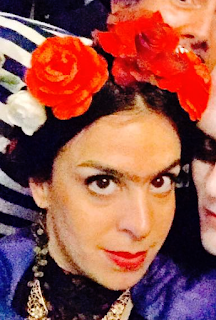How exclusive is disability history? How inclusive it may be?

By: Sebastian Barsch Last week, to the occasion of the annual carnival festivities, the people of Cologne firmly took control over public space. As a result the Cologne city-scape became packed with colourful costumes, dancing people and a lot of laughter. In between all those manifestations of carnival one occasionally could encounter a man or woman dressed up like a person with disabilities. Costume of Frida Kahlo in Cologne Carnival One of those persons was my colleague Mona Massumi. She masqueraded herself as the Mexican painter Frida Kahlo. Frida Kahlo suffered lifelong health problems and has often been a subject of disability theory. 1 Mona decided upon this costume because for her Frida Kahlo symbolizes a “strong woman in history: despite her difficult personal circumstances (sufferings caused by her disability, infidelity of her husband and the lack of recognition as an artist) she didn't lose her passion and courage.” As Mona is quite into diversity studies, she
